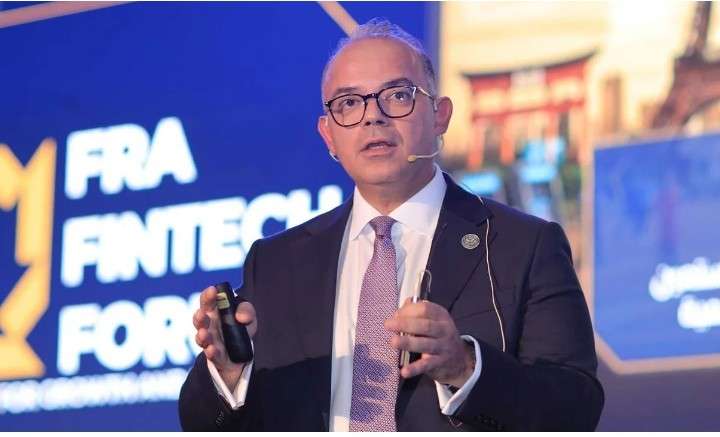Egypt’s Financial Regulatory Authority (FRA) has announced sweeping reforms to fast-track the digitization of non-banking financial services (NBFS), positioning the country as a rising fintech hub in the Middle East and Africa.
At the FRA Fintech Forum 2025, Chairman Dr. Mohamed Farid unveiled a package of new laws and regulatory decisions that enable digital identities, robo-advisory services, electronic contracts, and startup-friendly licensing rules.
Among the most notable shifts is the establishment of a regulatory sandbox for fintech experimentation and the approval for startups with EGP 15 million ($313,000) in capital to enter the NBFS space.
FRA also reported that 70 companies have begun digitizing operations, with 24 already offering full digital services and over 120,000 digital verifications completed.
As the global fintech wave intensifies, Egypt remains one of the African forerunners, leveraging technology to expand financial inclusion, strengthen investor protection, and align with international digital finance standards.
A Digital Race for Financial Inclusion
Dr. Mohamed Farid emphasized the urgent need for Egypt to align with global digital finance trends.
“More than 60 countries have launched regulatory platforms for digital finance,” he noted. “Egypt must not be left behind if we are to drive economic development and meet consumer expectations.”
He cited recent global trends, with 64% of people worldwide using digital services daily and nearly 80% of adults relying on digital financial tools, underscoring the necessity of innovation.
Legislative Backbone for Fintech Growth
The foundation of this transformation was laid through several pivotal FRA decisions, including Decision No. 57 regulating robo-advisory services, Decision No. 140/2023 on digital IDs and e-KYC, and Decision No. 268 allowing low-capital fintech startups to offer NBFS.
These are anchored by Law No. 5 of 2022, which formally integrated fintech into Egypt’s legal framework.
“Our approach is to create a forward-looking ecosystem that empowers innovation without compromising stability,” Dr. Farid said.
Measurable Progress and Implementation
According to FRA data, 70 NBFS companies have launched digitization processes, 24 are now fully digital, and 46 are working towards compliance.
Additionally, 120,000 digital verifications have been processed, 60% within the capital market, while 80,000 e-contracts have been issued. Seven companies are providing outsourced digital services.
“This is not just about technology,” said an FRA spokesperson. “It’s about redefining how citizens interact with financial services and ensuring greater accessibility and efficiency.”
Regulatory Sandbox and Hackathons
Under Decision No. 163/2024, the FRA launched a regulatory sandbox to provide fintech startups and outsourcing firms a controlled environment to test innovations.
The authority will also host its first hackathon this August, offering up to $300,000 in prizes, in partnership with the Mercatura Forum. A second InsurTech-focused hackathon will take place in September in collaboration with AUC Venture Lab.
“These hackathons are designed to unlock creativity and push the boundaries of what fintech can do in emerging markets like Egypt,” said Dr. Farid.
What Lies Ahead
Future plans include launching regulations for digital investment platforms, beginning with Real Estate Investment Trusts (REITs), and simplifying venture capital participation and fund structures.
FRA is also pushing for legal amendments to accommodate more diverse investment fund models and enhance the settlement of unpaid investment documents.
“We want to make Egypt not just a consumer of fintech innovations but a developer and exporter,” Dr. Farid explained. “Regulation must enable, not hinder, progress.”
Building Infrastructure for a Digital Future
The FRA is simultaneously undergoing its own digital transformation through strategic partnerships to modernize its infrastructure.
This includes the development of a digital professionals platform and a centralized registry for electronic contracts and signatures, marking a shift toward a fully integrated digital regulatory ecosystem.
“Digital transformation begins at home,” said Dr. Farid. “By modernizing our internal systems, we set a standard for the industry and ensure we’re leading by example.”
Talking Points
Egypt’s digital development has advanced significantly in recent years, driven by the government’s Digital Egypt strategy and the Financial Regulatory Authority’s proactive fintech reforms.
The country has expanded digital infrastructure, introduced e-government services across thousands of institutions, and enabled widespread use of platforms like Meeza, Fawry, and InstaPay to promote financial inclusion.
Landmark regulations, such as Law No. 5 of 2022 and subsequent FRA decisions, have supported innovations like robo-advisors, e-KYC, and regulatory sandboxes, helping fintech startups thrive.
However, challenges remain, including uneven internet access, concerns about data privacy, and the need for stronger oversight and transparency.
While the progress is commendable, Egypt’s long-term digital success will depend on balancing innovation with public trust, digital equity, and robust data governance.





